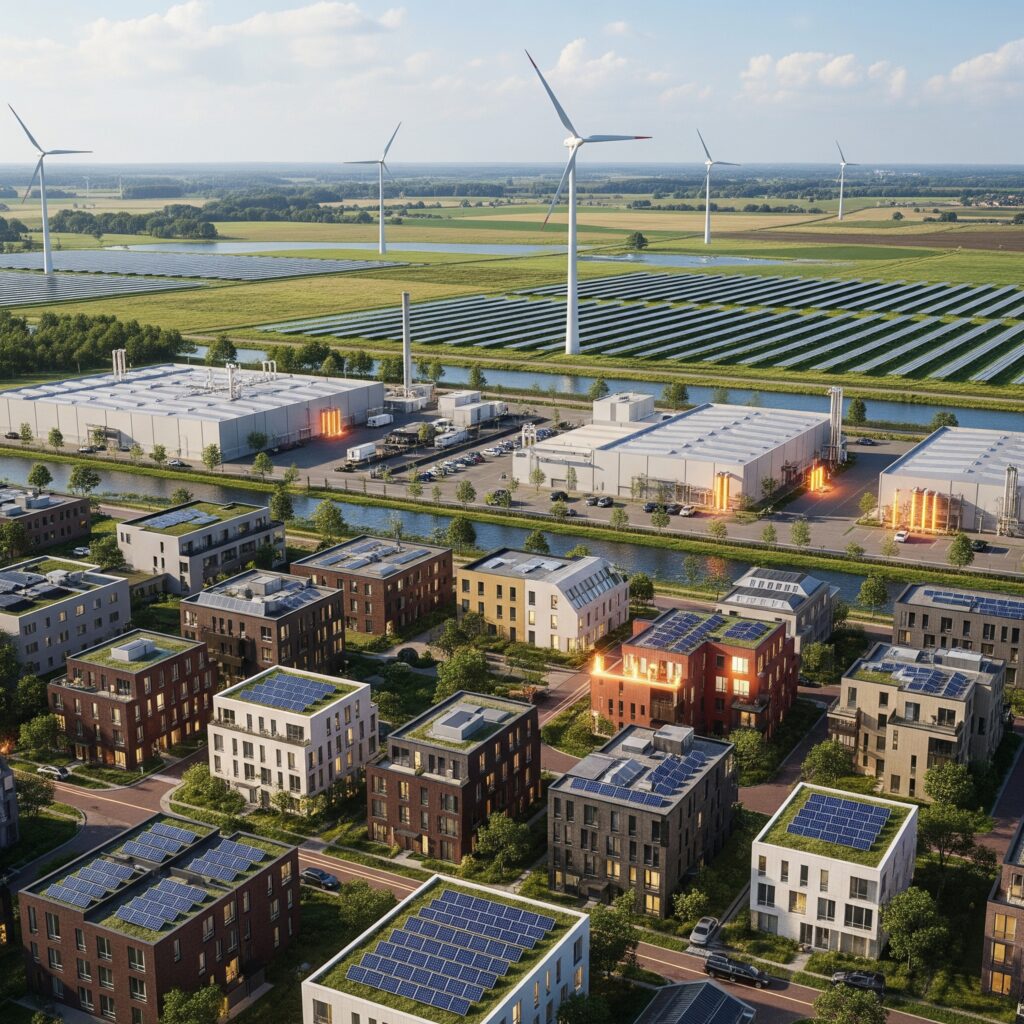Green Transition in Heating Systems: Changing Priorities
The climate crisis, energy consumption, and carbon emissions are now undeniable realities. Heating systems, from industrial facilities to our homes, stand at the heart of this transformation. Especially electric heating systems are emerging as indispensable solutions due to their potential to reduce environmental impact and enhance energy efficiency.
Environmental Footprint of Electric Heating: Less Emission, More Efficiency
Electric heating systems operate with significantly lower emissions compared to traditional fossil-fueled systems and produce no direct carbon emissions. As there is no combustion involved, there are no harmful by-products like flue gas, condensate, or chemical leaks. The direct transfer of energy to the target area minimizes heat loss.
When integrated with smart control technologies, these systems only activate when needed. This not only prevents unnecessary energy consumption but also reduces energy costs. For example, self-regulating cables used in pipelines, tanks, or surface heating applications automatically adjust based on ambient temperature. This technology eliminates overheating risks and ensures substantial energy savings by using only the required amount of energy.
A Broad Perspective: From Industry to Residential Solutions
In the industrial context, electric heating systems are widely used for process temperature maintenance, freeze protection, viscosity control, and equipment safety. Across sectors like chemicals, petrochemicals, pharmaceuticals, power generation, and water treatment, electric heating enhances operational efficiency and supports sustainability goals.
On the residential side, electric underfloor heating systems ensure uniform heat distribution from the ground up, providing comfortable heating even at lower temperatures. These systems also create a healthier environment for individuals with allergies by minimizing air circulation and dust movement. Snow and ice melting systems increase safety during winter on ramps, roofs, and open spaces. They are also favored in commercial buildings as an efficient alternative to centralized heating systems for localized heating needs.

Compatible with Renewable Energy
One of the greatest advantages of electric heating systems is their direct compatibility with renewable energy sources. These systems can be powered by electricity generated from solar or wind energy, significantly reducing the carbon footprint. Thanks to their low power consumption, they integrate seamlessly with solar panel systems.
Additionally, versions supported by batteries and inverters provide safe heating even in rural areas or locations with limited grid access. This flexibility makes electric heating applicable in agriculture, livestock, mobile structures, and logistics.
A Key Player in This Transition: SAMM Teknoloji
SAMM Teknoloji is one of the active players in the field of electric heating systems in Türkiye. The company serves as the distributor of globally recognized brands Thermon and ELEKTRA. These products are being used in local projects with the engineering support and field experience provided by SAMM Teknoloji.
Thermon is especially known for its industrial electric heating systems. Its ATEX-compliant solutions, energy-efficient cables, and process safety systems are preferred across production environments. ELEKTRA, on the other hand, provides comfort and efficiency in residential and commercial buildings with its underfloor heating and snow-melting systems.
SAMM Teknoloji not only supplies products but also manages the entire process with a holistic approach, including system selection, project planning, field application support, and commissioning. This approach enables the development of long-lasting and efficient, project-specific solutions.
Conclusion: Electric Heating Is No Longer a Choice, But a Necessity
Electric heating systems have become an integral part of the energy transition by offering environmentally friendly, safe, and applicable solutions. Whether in industrial or residential settings, reducing carbon emissions and optimizing energy use makes these systems no longer a choice, but a necessity.
Companies that gain experience by working with international brands and provide field-based application support continue to contribute to Türkiye’s sustainable energy goals. As one of the companies playing a role in this transformation, SAMM Teknoloji continues to offer innovative systems that drive efficient and future-ready solutions.



